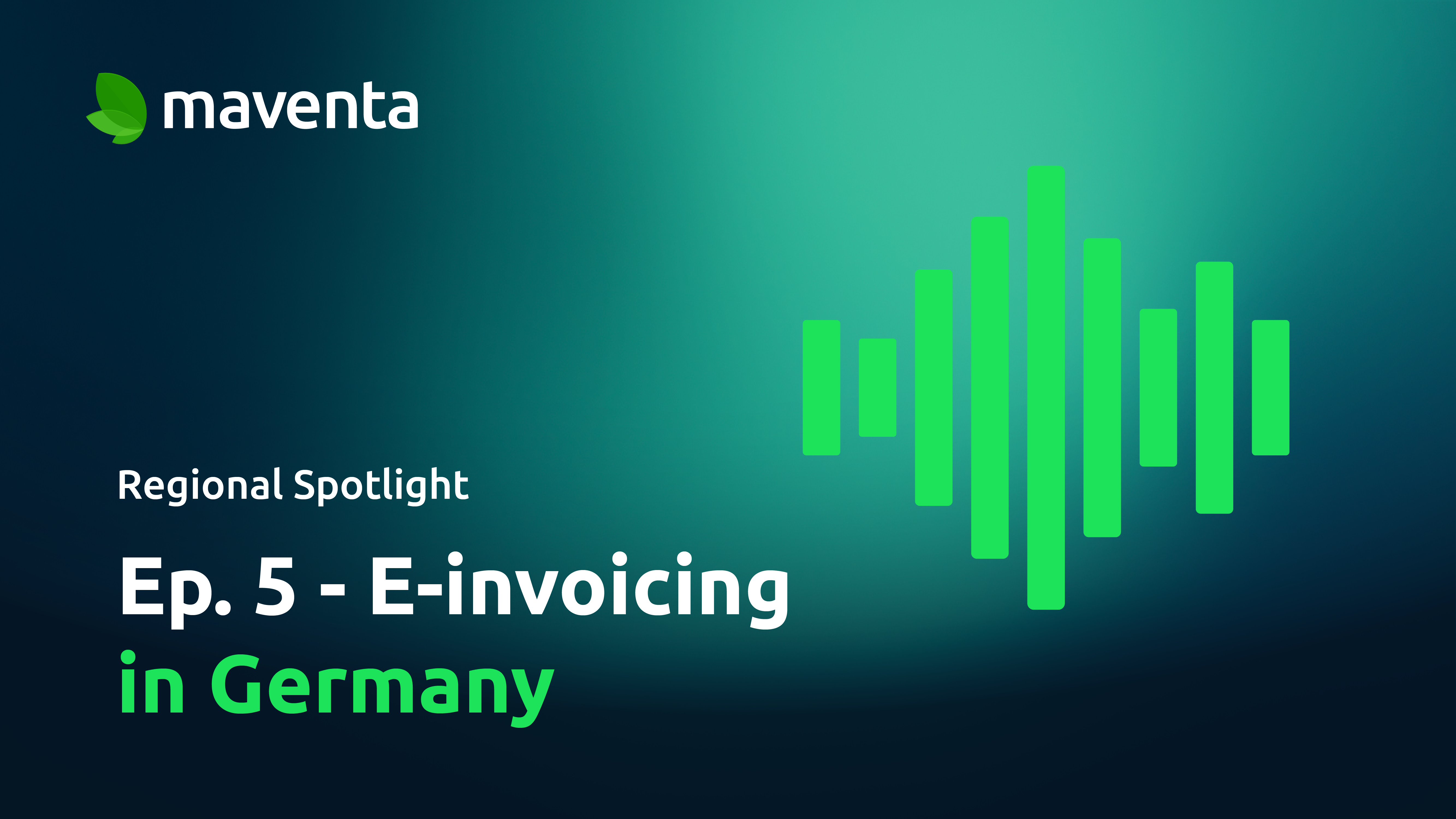Guide to e-invoicing requirements in Germany
Regional spotlight: Germany
The current invoicing landscape in Germany varies between states, owing to the de-centralised federal structure. In an effort to bring more standardisation, more security, and more efficient invoicing processes across Germany, e-invoicing is set to become mandatory for all private companies. The phased roll-out of the mandate begins in 2027.
What does e-invoicing look like in Germany, who has to implement it, and how will the overall landscape change in the next couple of years? This guide gives you an overview of current and upcoming invoicing legislation in Germany.
Public sector e-invoicing: Mandatory in some regions, accepted nationwide
Private sector e-invoicing: Mandatory from 2027 onward
E-invoicing standards and networks
Tax and compliance considerations
Conclusion
Public sector e-invoicing: Mandatory in several regions, accepted nationwide
Since November 2020, all public sector entities in Germany are required to accept e-invoices from their suppliers nationwide. However, the obligation for suppliers to send e-invoices varies by region due to Germany’s decentralised federal structure, where each state can decide on its invoicing practices.
E-invoicing is currently mandatory in seven federal states: Hamburg, Bremen, Hessen, Baden-Württemberg, Saarland, Mecklenburg-Vorpommern, and Rheinland-Pfalz. Rheinland-Pfalz introduced mandatory e-invoicing from January 1, 2024. In all other states, e-invoicing remains optional for now.
The approved e-invoicing formats are Peppol BIS 3.0, XRechnung, and ZuGFeRD, ensuring compliance with EU Directive 2014/55/EU. These formats support structured data exchange, improving efficiency and interoperability between businesses and public authorities.
Private sector e-invoicing: Mandatory from 2027 onwards
Germany is expanding its e-invoicing framework to the private sector, following a phased approach:
- From January 1, 2025, all German businesses must be able to receive e-invoices.
- From January 1, 2027, e-invoicing will become mandatory for all large and medium-sized companies.
- From January 1, 2028, e-invoicing will become mandatory for all businesses, regardless of size.
Currently, businesses in Germany can exchange invoices in any humanly auditable format and channel. However, as the transition period progresses, companies need to prepare to implement structured e-invoicing that complies with the upcoming legislation.
The standard formats for private sector e-invoicing include Peppol BIS 3.0, XRechnung, and ZuGFeRD. Other EN16931-compliant formats may be used if both parties agree. This will remain unchanged with the upcoming legislation.
E-invoicing standards and networks
Three e-invoicing formats are used in the majority of cases in Germany, ensuring compatibility across different industries and public institutions. The approved formats are:
- Peppol BIS 3.0 – The widely adopted European e-invoicing standard, which enables secure, cross-border invoicing.
- XRechnung – A structured XML-based format specifically designed for German public sector transactions.
- ZuGFeRD – A hybrid format that combines structured data with a human-readable PDF.
Tax and compliance considerations
German businesses need to comply with the 10-year archiving period requirement for e-invoices. Companies must ensure the secure storage and easy accessibility of e-invoices in case of audits or tax inspections.
Conclusion
Germany’s phased implementation of e-invoicing tells of a wider push towards standardisation across states, efficiency, and tax compliance. As of March 2025, public sector e-invoicing has already been widely adopted, and the private sector is now headed towards full-scale e-invoicing adoption by 2028.
Businesses should start preparing for the transition by ensuring their invoicing system can support at least one of the standard e-invoicing formats: Peppol BIS 3.0, XRechnung, or ZuGFeRD. Partnering with a reliable e-invoicing service provider can simplify this process, as businesses will have the expertise and technical assistance of the provider to rely on.
If you’re a software company looking to help your customers e-invoice effortlessly, Maventa’s e-invoicing solutions will seamlessly connect you to Peppol and local networks to expand your system’s reach. With just one integration, you can offer the best invoicing experience in the market for your customers.




